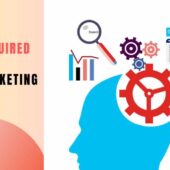Table of Contents
ToggleCorporate Training Program on Google Ads: Beginners vs Advanced Users
“Leadership and learning are indispensable to each other.” ― John F. Kennedy
Corporate training program encompasses learning activities which employers provide to their employees on to topics and upgradation areas ranging from mere soft skills to advanced role-specific capabilities. In this process employees and businesses both benefit by building intellectual capital of the company and by upskilling / reskilling employees.
Google Ads Training Program
Google Ads is a product that can be used to promote business, help sell products or services, increase awareness, and traffic to a website.
A thorough understanding of Google Ads will assist in building a foundational knowledge of paid online advertising that works as a catalyst to propel your career in the Digital Marketing field.
Google Ads Training Course for Beginners
Google Ads corporate training for beginners is essential for businesses looking to improve their digital advertising efforts and ensure their team understands how to effectively create and manage Google Ads campaigns. The following topics should be included while imparting Google Ads corporate training targeting beginners:
Introduction to Google Ads
Overview: What Google Ads is, how it works, and its importance in the digital marketing landscape.
Key Concepts: PPC (Pay-Per-Click) advertising, the Google Ads auction process, and the importance of Quality Score.
Setting Up a Google Ads Account
Account Creation: Walk through the steps to create a Google Ads account.
Account Structure: Structure of a Google Ads account, including campaigns, ad groups, and keywords.
Billing and Payments: Guide on setting up billing information and managing payment methods.
Keyword Research and Planning
Keyword Planner Tool: Use Google’s Keyword Planner to find relevant keywords.
Keyword Types: Different types of keywords (broad match, phrase match, exact match, and negative keywords) and their uses.
Creating Effective Ads
Ad Formats: Introduction of various ad formats including text ads, display ads, video ads, and shopping ads.
Ad Copywriting: Tips on writing compelling ad copy that drives clicks and conversions.
Ad Extensions: Use ad extensions to enhance ads with additional information.
Campaign Setup and Management
Campaign Goals: Set up campaign goals based on business objectives (e.g., brand awareness, lead generation, sales).
Bidding Strategies: Different bidding strategies (manual CPC, automated bidding, target CPA) and when to use them.
Targeting Options: Options such as location, demographics, interests, and remarketing.
Performance Monitoring and Optimization
Metrics and KPIs: Key metrics (CTR, CPC, conversion rate, ROAS) and how to monitor them.
Reports and Dashboards: Google Ads reports and dashboards for performance analysis.
Optimization Techniques: Strategies for optimizing ad performance, including A/B testing, adjusting bids, and refining keywords.
Compliance and Best Practices
Google Ads Policies: Ensure compliance and avoid ad disapprovals.
Best Practices: Best practices for maintaining account health and achieving better results.
Google Ads Training Course for Advanced Users
To cater the requirements of advanced users, Google Ads corporate training should focus on in-depth strategies, advanced features, and optimization techniques. Here’s some of the topics to focus while providing corporate training program for advanced Google Ads users:
Advanced Keyword Strategies
Keyword Match Types: Deep into the nuances of match types (broad match modifier, exact match, phrase match) and their strategic applications.
Long-Tail Keywords: Strategies for identifying and leveraging long-tail keywords to capture highly targeted traffic.
Negative Keywords: Advanced techniques for using negative keywords to improve campaign efficiency and reduce wasted spend. Check Keyword Planner Tool Tutorial to get more insights
Advanced Bidding Strategies
Automated Bidding: In-depth exploration of automated bidding strategies (Target CPA, Target ROAS, Enhanced CPC) and when to use them.
Bid Adjustments: Techniques for adjusting bids based on device, location, time of day, and audience performance.
Smart Bidding: Utilizing machine learning for predictive bidding and real-time adjustments.
Ad Copy and A/B Testing
Ad Variations: Advanced ad copywriting techniques and using ad customizers for dynamic ads.
A/B Testing: Methodologies for setting up and analysing A/B tests to optimize ad performance.
Responsive Search Ads: Best practices for creating and optimizing responsive search ads.
Audience Targeting and Segmentation
Audience Insights: Utilizing Google Ads Audience Insights for creating detailed customer personas.
Advanced Remarketing: Creation of advanced remarketing lists and strategies (for Remarketing Campaigns).
Custom Audiences: Creating and exploring custom intent and custom affinity audiences.
Advanced Campaign Types
Shopping Campaigns: Optimizing Google Shopping campaigns, including Smart Shopping and Showcase Shopping Ads.
Video Campaigns: Advanced strategies for YouTube advertising, including TrueView, bumper ads, and YouTube for Action campaigns.
Display Campaigns: Advanced targeting options and optimization techniques for Google Display Network (GDN) campaigns.
Performance Tracking and Attribution
Advanced Analytics: Google Analytics for tracking and optimizing campaign performance.
Attribution Models: Understanding and applying different attribution models to better allocate budget and optimize ROI.
Data-Driven Attribution: Using data-driven attribution models for more accurate performance measurement.
Automation and Scripts
Google Ads Scripts: Introduction to using scripts for automating routine tasks and optimizing campaigns.
Automation Tools: Leveraging third-party tools and Google Ads features like Rules and Automated Insights for campaign management.
Optimization Techniques
Quality Score Optimization: Advanced techniques for improving Quality Score and overall ad rank.
Landing Page Optimization: Best practices for creating and optimizing landing pages to improve conversion rates.
Conversion Rate Optimization (CRO): Advanced CRO techniques and testing methodologies.
Integration with Other Marketing Channels
Cross-Channel Strategies: Integrating Google Ads with other marketing channels like SEO, social media, and email marketing for a cohesive strategy.
Marketing Automation: Using tools like HubSpot, Marketo, or Salesforce to automate and optimize cross-channel campaigns.
Final Words:
By combining these training elements, tailormade for beginners and advanced users, you can ensure that your team is equipped with the skills and knowledge needed to excel in managing and optimizing Google Ads campaigns at basic to an advanced level, based on the requirements of the training population’s skill level.
Also refer our most loved guide on – Types of Google Adwords Certification Courses






